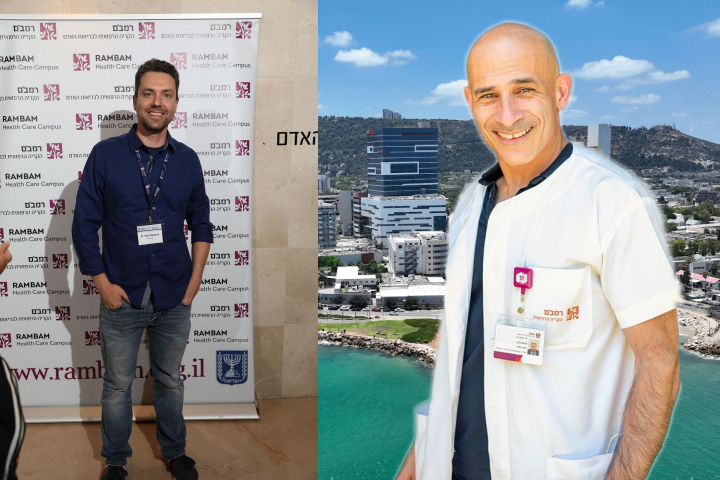This week, Apple received approval from the U.S. Food & Drug Administration to market its AirPods Pro 2 as hearing aids for people with mild to moderate hearing loss. How will this affect the medical field, patients, and the market? Two senior physicians at Rambam Health Care Campus (Rambam) in Haifa, Israel, shared their insights in an article published by the respected Hebrew daily, Globes.
 (L-R) Dr. Yona Vaisbuch and Dr. Reuven Ishai. Photography: Rambam HCC
(L-R) Dr. Yona Vaisbuch and Dr. Reuven Ishai. Photography: Rambam HCC
Apple recently unveiled new AI tools that are being integrated into their products. One of these tools—a free algorithm embedded in the AirPods Pro 2—provides advanced noise cancellation while picking up and enhancing surrounding sounds. The United States Food & Drug Administration (FDA) recently approved the product for use by people with mild to moderate hearing loss, together with an Apple app that allows users to perform a home hearing test. Data from the app is processed by the algorithm enabling a customized hearing aid solution for users.
They are designed for people with some level of hearing loss who do not currently use hearing aids. At the launch, Apple emphasized that hearing health is important for people of all ages—not just older adults.
According to Globes, Apple has been aiming to make significant strides in the healthcare market with smart devices that provide actionable data.
Dr. Reuven Ishai, a senior physician in Rambam’s Department of Otolaryngology-Head & Neck Surgery and coordinator of the hospital’s Dizziness and Balance Service, mentioned to Globes that around one-third of people over 60 experience hearing loss, a figure that rises to 50% by age 75. He added that increased headphone usage has led to hearing loss diagnoses in 4% to 8% of teens.
Dr. Yona Vaisbuch, also a senior physician in the Department of Otolaryngology-Head & Neck Surgery and founding director of Biodesign Israel, explained that hearing loss is the second most common medical condition after high blood pressure. Of the hundreds of millions of people who need hearing aids, only a small percentage use them regularly.
Vaisbuch shared that a decade ago, while practicing in Silicon Valley, he discussed integrating hearing aids into ‘cool’ headphones with tech experts. Bose [an audio equipment company] attempted this but did not succeed; Apple’s use of AI seems to have overcome these previous challenges.
The question now is whether Apple’s solution will encourage earlier use of hearing aids and what impact this will have on the population. Experts note that early adoption of hearing aids can significantly benefit users, as untreated hearing loss makes adapting to hearing aids more difficult and may lead to additional health risks such as falls, balance problems, and vascular disease.
Ishai hopes that people who start using Apple’s airpods to enhance hearing will recognize the benefits of dedicated hearing devices prioritizing and improving quality of life.
Vaisbuch also envisions a bright future for hearing-related technology, predicting the rise of ‘Earables’ that will monitor various health metrics. He predicts that the future of wellness could be integrated into these devices. Earables could include balance training apps, fall detection sensors, and even emergency contact features.
Read the original article in Hebrew in Globes

